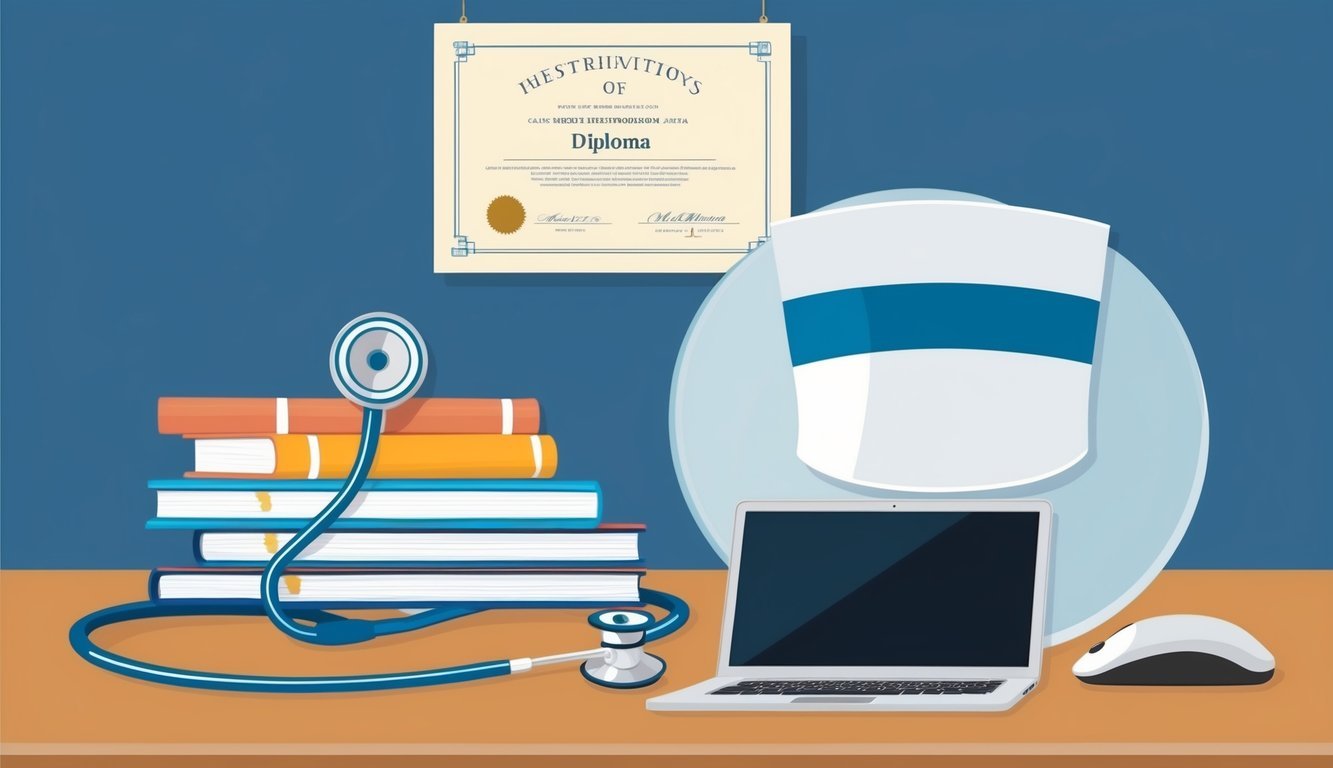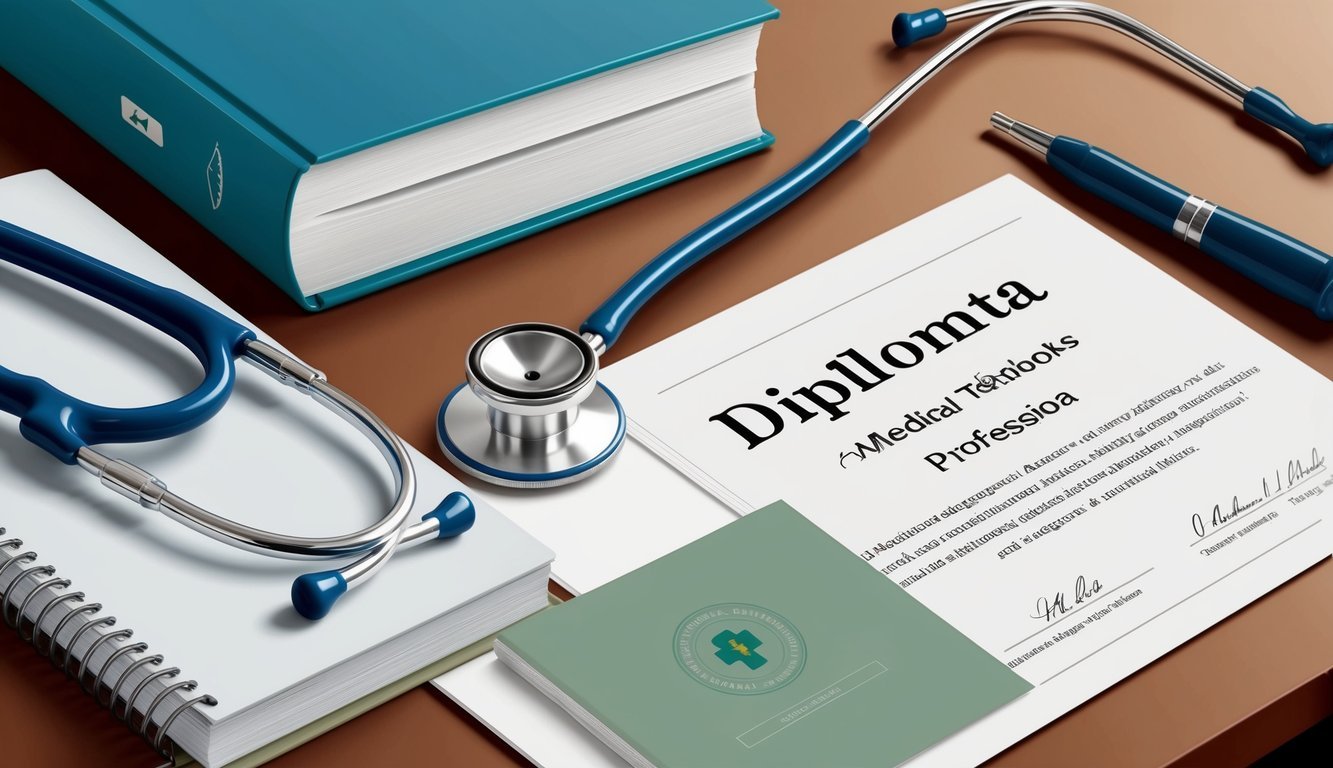The Associate Degree in Nursing (ADN) is a crucial stepping stone for those aspiring to become a Registered Nurse (RN).
This 2-year program provides the essential education and training needed to sit for the NCLEX-RN examination, paving the way for a rewarding career in healthcare.
With an ADN, you gain critical skills to provide patient care in various settings, making it a popular choice for many students.
Choosing an ADN program allows you flexibility, with options for both online and on-campus learning.
While the ADN is the minimum requirement to become licensed as an RN, it opens doors to substantial job opportunities in nursing, where demand continues to rise.
As a graduate, you will be equipped with the knowledge to address the ethical and legal aspects of nursing, ensuring a well-rounded foundation for your career.
As you explore this educational path, consider the key differences between an ADN and a Bachelor of Science in Nursing (BSN).
Each option leads to a fulfilling career, but understanding their unique benefits can help you make an informed decision about your future in nursing.
For more detailed insights, check out resources like Nurse.org and RegisteredNursing.org.
Understanding the ADN
The Associate’s Degree in Nursing (ADN) provides a path to becoming a registered nurse (RN) through a focused curriculum.
This section covers the key components of ADN programs, including their structure and necessary admission requirements.
Overview of an ADN Program
An ADN program typically spans 18 to 24 months and is designed to equip you with the essential skills and knowledge required to pass the NCLEX-RN examination.
Courses often blend theoretical knowledge with practical experience, covering areas such as:
- Fundamentals of Nursing
- Pharmacology
- Health Assessment
- Ethics and Legal Issues in Nursing
Practical components may include clinical rotations in various healthcare settings, allowing you to apply skills in real-world scenarios.
Many programs are accredited by organizations like the Accreditation Commission for Education in Nursing (ACEN), ensuring that you receive quality education.
You can find more details about various programs at Nursing Process.
Admission Requirements
To gain admission to an ADN program, institutions typically require specific qualifications, which may include:
- A high school diploma or equivalent
- Prerequisite courses in biology, chemistry, and algebra
- A minimum GPA, often around 2.5 to 3.0
- Entrance exams like the TEAS (Test of Essential Academic Skills)
Some schools may also require interviews or letters of recommendation.
It’s essential to review each program’s unique criteria as admission standards can vary.
Understanding these requirements allows you to better prepare your application and increase your chances of acceptance.
For further details on the admissions process, check out Better Nurse.
Curriculum and Coursework
In an Associate Degree in Nursing (ADN) program, you will engage in a comprehensive curriculum designed to equip you with essential nursing knowledge and skills.
The coursework emphasizes foundational nursing principles and practical experiences in diverse healthcare settings.
Core Nursing Courses
Core nursing courses form the backbone of the ADN curriculum.
You will typically cover subjects such as Nursing Foundations, Pharmacology, and Patient-Centered Care.
| Course Name | Key Focus Areas |
|---|---|
| Nursing Foundations | Basic nursing skills and ethics |
| Pharmacology | Medication management and safety |
| Patient-Centered Care | Communication and patient assessment |
Each course focuses on preparing you for real-world nursing scenarios, enhancing both cognitive and clinical skills.
You will learn how to assess patients, administer medications, and provide compassionate care.
Clinical Hours and Experience
Clinical experience is a vital component of your education.
Programs usually require a set number of clinical hours in various healthcare settings, ensuring hands-on practice.
You may have opportunities during your clinical rotations to work in:
- Hospitals
- Clinics
- Long-term care facilities
Additionally, simulation labs enhance your learning by providing a safe environment to practice skills before interacting with real patients.
This practical experience allows you to apply theoretical knowledge and refine your clinical skills, making you more prepared for the nursing profession.
You can learn more about the importance of clinical education by visiting Nurse.org’s ADN guide.
Licensing and Career Path

To pursue a career as a Registered Nurse (RN) after earning your associate degree in nursing, you must pass the NCLEX-RN examination and obtain your RN license.
These steps are crucial for securing employment in various nursing positions.
NCLEX-RN Examination
The NCLEX-RN exam is a national licensure test that you must pass to become a registered nurse.
This exam assesses your knowledge and skills related to safe and effective patient care.
- Format: The exam consists of multiple-choice questions and is computer-adaptive.
- Content: It includes four major areas:
- Safe and effective care environment
- Health promotion and maintenance
- Psychosocial integrity
- Physiological integrity
The current NCLEX pass rate is approximately 82% for first-time test takers.
Preparing thoroughly for this examination is essential in securing your RN credentials.
You can explore various resources to help you study effectively, including test prep courses and practice exams.
RN License and Employment
After successfully passing the NCLEX-RN exam, you will need to apply for your RN license through your state’s nursing board.
Each state has its specific requirements for licensure, including background checks and application fees.
Upon receiving your license, you can explore entry-level nursing positions in various healthcare settings.
Common roles include:
- Staff Nurse: Providing direct patient care in hospitals or clinics.
- Home Health Nurse: Offering care to patients in their homes.
- Long-Term Care Nurse: Working in nursing homes or rehabilitation facilities.
Earning your RN license opens up numerous opportunities, enabling you to specialize in areas such as pediatrics, geriatrics, or emergency care, among others.
The demand for registered nurses continues to grow, ensuring a stable career path with options for advancement.
Specializations and Advancements
As an aspiring nursing professional, understanding the range of specializations and advancement opportunities available to you is crucial.
These options will define your career path and allow you to focus on areas that match your interests and skills.
Specialized Nursing Fields
Pursuing an Associate Degree in Nursing (ADN) provides a solid foundation, allowing you to enter various specialized fields.
Some popular options include:
- Behavioral Health Nursing: Focuses on mental health and requires strong critical thinking skills.
- Maternity Nursing: Involves caring for expectant mothers and newborns, often providing opportunities in labor and delivery settings.
- Pediatric Nursing: Concentrates on the healthcare needs of children, requiring a special approach and communication style.
Many nurses further enhance their expertise by pursuing certifications specific to their fields, which can improve job prospects and salary potential.
Additionally, obtaining a Bachelor’s Degree in Nursing (BSN) opens doors to even more specialized roles.
Higher Education and Opportunities
Advancing your education is vital for career progression in nursing.
You can consider options such as:
- RN to BSN Programs: Designed for registered nurses with an ADN to further their education and increase their career opportunities.
- LPN to RN Bridge Programs: Allow licensed practical nurses to transition to registered nursing roles, expanding their professional scope.
Scholarships and financial aid can help you pursue these educational advancements.
Specialized training will enhance your nursing skills, making you more competitive in the job market.
Notably, many healthcare employers prefer hiring BSN-prepared nurses due to their comprehensive training and preparedness for complex patient care scenarios.
Financial Considerations
Navigating the financial aspects of an Associate Degree in Nursing (ADN) is crucial for your success.
Understanding tuition costs and potential financial aid can help you make informed decisions about your educational investment.
Tuition and Expenses
Tuition costs for ADN programs can vary significantly based on the institution.
Community colleges typically offer the most affordable options, with tuition ranging from $3,000 to $10,000 per year.
Vocational schools may charge between $10,000 and $20,000 for their programs.
| Institution Type | Average Tuition Cost |
|---|---|
| Community Colleges | $3,000 – $10,000 |
| Vocational Schools | $10,000 – $20,000 |
| Online ADN Programs | $5,000 – $15,000 |
Don’t forget to factor in additional expenses such as textbooks, uniforms, and lab fees, which can add another $1,000 to $2,000 annually.
Researching various institutions will help you find the best financial fit.
Scholarships and Aid
Many financial aid options are available to ease the burden of tuition.
You can explore scholarships specifically for nursing students through community colleges and organizations.
For example, the American Association of Colleges of Nursing offers scholarships that can cover a portion of your tuition.
Federal and state financial aid programs, including Pell Grants and subsidized loans, also provide support.
Completing the Free Application for Federal Student Aid (FAFSA) is essential to access these opportunities.
Some ADN programs offer payment plans or reduced tuition for online classes, making education accessible.
Be proactive in seeking out nursing scholarships to maximize your financial support.

